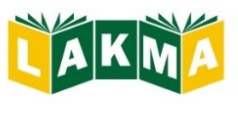“How many people who live beside us are worth that much a wider circle of people would learn about their lives? Of course, not one or two. Often we pass by many people not even imagining that one or another person has lived a dignified life …”
These are the words from the recently published book “Oral History” (Gyvoji istorija). The publication was organized by Nancy Hanssen, Undergraduate Programs Coordinator at the University of San Diego (USD) California and Diana Galatiltienė, English teacher at Švenčionys Zigmas Žemaitis Gymnasium. The book contains thirty stories written by gymnasium students who interviewed their elder family members and relatives. This book provides valuable educational material for history lessons as it clearly depicts the struggle for independence by the people living in Švenčionys region.
The Oral History project originated a few years ago at a school in Kenya with the purpose of modeling Project Based Learning. Part of the process included students at Daraja Academy, the first secondary school for girls in Kenya, skyping with the Lithuanian students to share their experiences. Two dedicated Lithuanian teachers from Prienai Žiburys Gymnasium V. Gustaitytė and V. Juodsnukienė facilitated the project in 2013-14 which resulted in a multi-national partnership and the publication of the first book. The Oral History project is part of a USD faculty grant by Dr. Bobbi Hansen. One objective of the project was sustainability, so the project was continued by our gymnasium in Švenčionys. The second book was published in November 2015.
The main goal of the project was to enhance students’ interest in the history of their country, region and family using the techniques of project based learning. The students have also learnt and applied interview and note-taking skills, and they were taught the art of publication.
The whole project took eleven months in our school. In phase one students identified three elders from their family with regard to three main historical time periods to interview over the summer. The interview questions included: What was life like under the Soviet rule? What do you remember about the struggle for independence? How has life changed since independence? What was your childhood like? How has the role of the elders in the community changed? What were the hardest experiences in your life? Later the students created word clouds brainstorming Lithuanian and English words related with oral history. This gave the students a better understanding of the project. During the summer the students interviewed the elders and recorded their answers. The last phase was to compile the narratives, choose the photos and publish the book in Lithuanian and English. The books were published with support from the University of San Diego and distributed to all involved with the project.
I am sure that every single participant of this project has gained incredible experience through the interviews with their family members as well as valuable knowledge of the historical periods that were explored. The students say: “The project aroused my interest in the stories of my family and encouraged me to take interest in the history of the Švenčionys region”. “I had an opportunity to compare the historical events of the period as they are presented in history books with real life stories told by the people”.
Diana Galatiltienė, coordinator of the Oral History project




